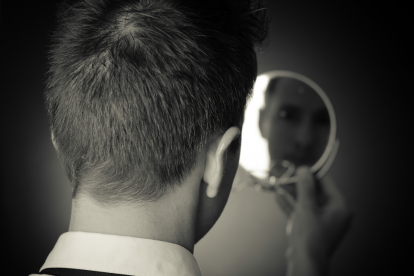Living with Untreated Bipolar Disorder—And the Possibilities for a Better Quality of Life

When someone is living with untreated bipolar disorder, the rollercoaster of moods and thoughts and energy seems overwhelmingly intense and endless. But with treatment, life begins again with controlled symptoms and a new lease on one’s personal power, relationships, and goals. If someone you care about is struggling with bipolar disorder, you can help them get and stay connected with the treatment they need to thrive.
Bipolar is a mental health disorder that involves taking steps forward and taking steps back at different times. Even when someone is getting treatment, backward steps still happen. But, at least, with treatment, the steps forward outpace the steps back, and a person always has supportive resources to reach for at any point along the way. When someone is living with untreated bipolar disorder, they can expect to take bigger, more detrimental steps backward. They may still experience times of balance and forward progress, but when the challenges arise, they will have to face them without critical tools and support.
We should all be aware of the diverse barriers to bipolar disorder treatment and recovery. It may be denial or other personal resistance that keeps a person from getting or accepting the help they need. Even after someone has had access to treatment, they may struggle to stick with it or lose patience with medication side effects and discontinue their treatment. Sometimes, it’s hard to actually see the illness. When someone is experiencing a lull in symptoms or, perhaps, they are experiencing a hypomanic episode and feeling uncommonly uplifted, they may conclude that they are no longer in need of treatment.
For those who have not yet had access to treatment for bipolar disorder, it can be difficult to find the right professional help. Furthermore, diagnosis is challenging, and misdiagnosis is very common. But experienced clinicians in supportive settings are prepared to pinpoint accurate diagnoses and to bridge the barriers between life with untreated bipolar disorder and life that is renewed with customized support and empowered possibilities.
What Is It Like Living with Untreated Bipolar Disorder?
To put it simply, untreated bipolar disorder generally gets worse. And it can lead to damaging consequences in different areas of life, the more someone’s symptoms take control.
The risks of untreated bipolar disorders can include:
- Severe challenges at work or school and difficulty holding down responsibilities
- Increased financial burdens with limited personal power to address them
- Greater stress in social situations
- Strained interpersonal relationships and perhaps loneliness and isolation
- Heightened depression or anxiety
- Suicidal thoughts and attempts
- Substance abuse issues that can lead to unchecked and destructive consequences
Many people with bipolar disorder describe their experience as if they are riding an unpredictable roller coaster of changing moods, fluctuating energy levels, and varying clarity of thought. While there are effective and reliable treatment options available, without treatment, it is as if there really is no way off of this devastating ride.
Begin Your Recovery Journey.
877-727-4343What Is It Like Living with Bipolar Disorder in Treatment?
Treatment options address the distressing symptoms of bipolar disorder in a combination of ways. With a precise diagnosis, clinicians are able to develop a medication regimen that is responsive to the individual’s needs. At the same time, therapy in individual, group, and holistic formats can guide a person toward:
- Identifying and managing triggers
- Coping with stress in positive ways
- Developing productive social, vocational, and other life skills
- Rehabilitating relationships that have suffered in the wake of the illness
- Fostering a diverse and enduring support system
Seeing and accepting bipolar as a mental health disorder opens doors to healing and empowered living. While treatment doesn’t equal a cure, it can amount to a completely new direction and vastly improved quality of life—through the downs and the ups. With a treatment plan in action, people with bipolar disorder generally experience fewer and less intense mood swings. And they feel more equipped to handle the symptoms that do arise and to pursue their personal goals that may have felt out of reach before. With treatment, a person doesn’t have to live at the whim of their bipolar disorder.
How Can You Help a Loved One Get on the Path to Treatment and Recovery?
A healthier path can begin today. Living with bipolar disorder doesn’t have to be a hopeless, helpless ride. Not only can you help a loved one access individualized treatment for bipolar, but you can also support them in sustaining this recovery journey. Treatment adherence is simultaneously one of the most challenging and one of the most critical elements of the long-term healing path with bipolar disorders.
The sooner a person can access the medications, psychotherapy, and other support tools that are ideal for them, the sooner they can reshape their life around healthy routines and a hopeful perspective. The best place to begin is in a residential setting. Here, clinicians are knowledgeable about bipolar’s specific symptoms and the comprehensive options for treatment. The environment is comfortable and serene so clients can put their healing first. And the support community also includes peers who are on similar recovery paths and family and friends, who are encouraged to participate. This haven of life-changing help is ready to welcome you and those you care about.
Bridges to Recovery is a treatment center for bipolar disorder and other mental health disorders. Contact us to learn more about our renowned Los Angeles programs and how we can help you or your loved one start the journey toward healing.






